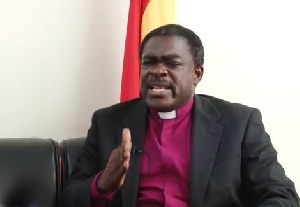The Christian Council of Ghana (CCG) has called on the Government to, as a matter of urgency, engage stakeholders on their roles in the implementation of the Free Senior High School (SHS) Policy to ensure its success.
The Council said the implementation of the SHS Policy must be a collective responsibility of all key stakeholders instead of leaving it on the shoulders of the Government alone.
“Considering the history of educational development in the country, we are convinced that the success of the Free SHS Policy must be a collective responsibility,” Reverend Dr Kwabena Opuni-Frimpong, the General Secretary of the CCG, said in an interview with the Ghana News Agency on Sunday.
While commending the Government for its efforts at fulfilling the campaign promise, Rev Opuni-Frimpong said it needed to engage stakeholders to do more deliberations to ensure the smooth take off of the Policy in September.
The Parents-Teacher Associations (PTAs) the SHS level, Old Students Associations, and religious and traditional leaders are some of the stakeholders who could contribute substantially towards the provision of school infrastructure and their maintenance within the framework of the Policy, he said. “Government has been very consistent and has sustained its pledge by implementing the free SHS Policy, which is very commendable. “However, what is not certain at the moment is what the role of the key stakeholders would be under the Free SHS Policy,” Rev Opuni-Frimpong said. He said because of the useful role stakeholders had played over the years in the education system, they were able to demand accountability from the managers of schools in ensuring quality education for Ghanaian students. He said the PTAs, for instance, were billing parents, which they used as funds to help in providing some infrastructure and extra classes for the students, all geared towards enhancing teaching and learning.
“Now the Government is saying all infrastructure, feeding, and textbooks will be free, so the stakeholders must be properly engaged to see what role they will continue to play.
“We should not assume any role for any stakeholder, there must be proper engagements with clear-cut roles,” Rev Opuni-Frimpong said.
General News of Monday, 28 August 2017
Source: GNA
Further engagements on Free SHS policy needed - Christian Council
Entertainment












